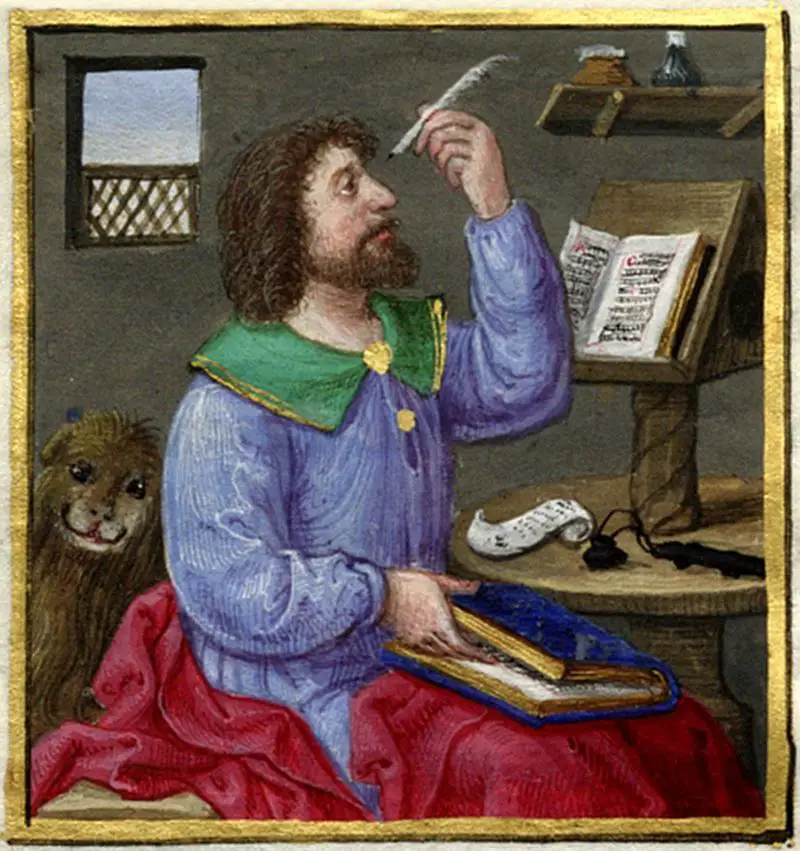However, it wasn't always a day of fun and dancing, in 1517 there was a riot. Here's an extract from my book On This Day in Tudor History:
On this day in 1517, May Day, a mob of young apprentices and labourers gathered at St Paul's and then went on a rampage through the streets of London, causing damage to property and hurting those who stood in their way.
The rioters of this Evil May Day riot focused particularly on damaging and looting the shops and houses which belonged to foreign traders, such as the shoe shops around Leadenhall and the house of French merchant John Meautys. Chronicler Edward Hall put the trouble down to John Lincoln, a London broker, who wrote a bill that Easter encouraging “doctor standyche” to use his Easter sermon at St Mary Spital to try and persuade the Mayor and aldermen “to take parte with the comminaltie agaynst the straungiers”, the foreigners he felt who were damaging London's economy and taking work away from Englishmen. Standish refused to preach what Lincoln wanted, so he turned to Dr Bell who was to preach on Easter Tuesday. Dr Bell listened to Lincoln and preached what he wanted the people to hear. Bell said:
“or so it is that the alyens and strangiers eate the bread from the poore fatherles chyldren, and take the liuynge from all the artificers and the entercourse from all merchauntes, wherby pouertie is so muche encreased that euery man bewaileth the misery of other, for craftes me be brought to beggery and merchauntes to nedyues”
…and called on the people to to act against the foreigners causing their poverty:
“and as byrdes woulde defende their nest, so oughte Englishemen to cherysbe and defende them selfes, and to hurt and greue aliens for the common weak.”
Hall believes that it was this sermon, this call to action (or even call to arms), that caused the Evil May Day Riot, but historian Graham Noble points out that the sermon actually took place two weeks before the trouble started, and that it's more likely to have been the government's fault for reacting to some “sporadic attacks” two days before the riot by instituting a curfew on May Day, a night which was usually one of fun and celebration.
Arrests were made by the Duke of Norfolk and his men. On 4th May, thirteen people were executed, and on 7th May John Lincoln was executed. Others were saved by the intercession of Henry VIII's wife, Catherine of Aragon, and his sisters, Margaret and Mary, who pleaded with him to spare them, although, as Noble points out, this was probably a PR exercise thought up by Henry or Wolsey.




May is a day for flowers, frolicking and fertility and the May Queen, later the Virgin Mary became Queen of the May. As you say May Day does have other history as well such as the terrible May Day riots 1517 and the terrible afterwards.
In England we had riots in London several May Days on the run as a wider protest in the 1990s. You may recall news reports of the statue of Winston Churchill being covered in grafitee and London looking as if a bomb had hit it. The Russians of course had Labour Day as May Day with marching past with guns and fake missiles, tanks and so on. In Bruge they have a Blessed Sacrament parade. The Beltane fires are still lit in parts of Scotland and southern England and in Glasgow and Edinburgh they go wild. There is also a celebration of the Virgin Mary during May.
Here in Spain, 1st May is El Día de los Trabajadores, the day of the workers, as it is in quite a few countries. Our kids used to laugh that it was the day of the workers but it was a day off!
There really isn’t anything new under the sun. In the 1500’s the people were upset with foreign immigrants and here it is 2017 and we’re still complaining about the same thing. It’s all a matter of survival.
Interesting comment Those foreigners in 1517 came legally, were not trying to take over England, or to mercelously kill its people…… The apprentices were “children” incited by words and by alcohol They were sentenced to be hung, drawn and quartered A terrible sentence for rioting! Hopefully the three queens were horrified enough to plead for the lives of those young people but PR could very well be an element in King Henry’s decision too
Immigrants today are not trying to take over England or kills its people.